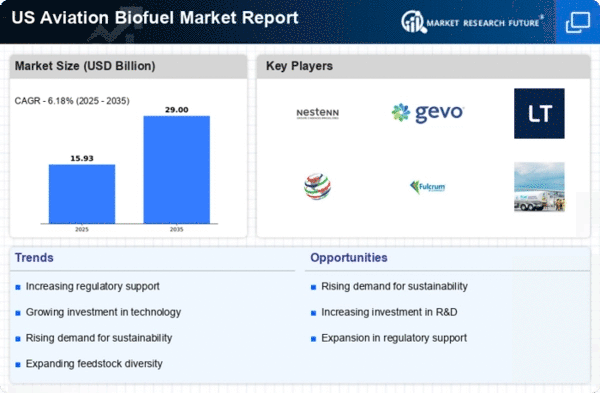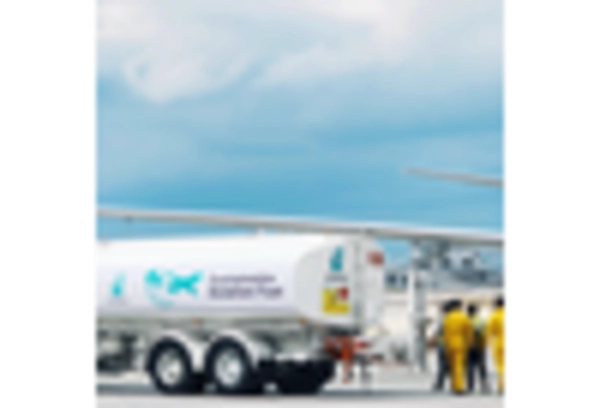Rising Environmental Concerns
The aviation biofuel market is experiencing a surge in interest due to increasing environmental concerns. As climate change becomes a pressing issue, stakeholders in the aviation sector are under pressure to reduce greenhouse gas emissions. The aviation industry is responsible for approximately 2-3% of global CO2 emissions, prompting a shift towards sustainable alternatives. Aviation biofuels, derived from renewable resources, offer a potential solution to mitigate these emissions. The market is projected to grow as airlines and manufacturers seek to meet sustainability targets, with a projected increase in biofuel usage by 30% by 2030. This trend indicates a strong commitment to environmental stewardship within the aviation biofuel market, driving investments and innovations in sustainable fuel technologies.
Economic Viability of Biofuels
The economic viability of aviation biofuels is becoming increasingly favorable, contributing to the growth of the aviation biofuel market. With advancements in production technologies, the cost of biofuels is gradually decreasing. For instance, the price of biofuels has dropped by approximately 20% over the past five years, making them more competitive with traditional fossil fuels. Additionally, government incentives and subsidies are enhancing the financial attractiveness of biofuels. The aviation sector is projected to invest over $1 billion in biofuel development by 2027, indicating a strong belief in the economic potential of these fuels. This economic shift is likely to encourage more airlines to adopt biofuels, further propelling the aviation biofuel market.
Government Policy and Regulation
Government policy and regulation play a crucial role in shaping the aviation biofuel market. Legislative measures aimed at reducing carbon emissions are driving the adoption of biofuels in the aviation sector. The U.S. government has set ambitious targets for reducing greenhouse gas emissions, which include increasing the use of sustainable aviation fuels. Recent policies have introduced tax credits and grants for biofuel production, incentivizing investment in this sector. The aviation biofuel market is likely to benefit from these supportive policies, as they create a favorable environment for biofuel producers and airlines. By 2026, it is projected that regulatory frameworks will further evolve, enhancing the market's growth potential.
Consumer Demand for Sustainable Travel
Consumer demand for sustainable travel options is significantly influencing the aviation biofuel market. As travelers become more environmentally conscious, airlines are responding by incorporating sustainable practices into their operations. Surveys indicate that over 70% of travelers are willing to pay a premium for flights powered by sustainable fuels. This shift in consumer behavior is prompting airlines to invest in aviation biofuels to meet customer expectations. The market is expected to expand as airlines recognize the importance of aligning their offerings with consumer values. By 2025, it is anticipated that the demand for sustainable aviation fuels will increase by 40%, reflecting a growing trend towards eco-friendly travel solutions within the aviation biofuel market.
Technological Innovations in Biofuel Production
Technological innovations in biofuel production are significantly impacting the aviation biofuel market. Advances in feedstock conversion processes and production techniques are enhancing the efficiency and scalability of biofuel production. For example, new methods such as gasification and fermentation are being developed to convert a wider range of biomass into aviation fuels. These innovations are expected to reduce production costs and improve fuel quality, making biofuels more attractive to airlines. The aviation biofuel market is likely to see a surge in new technologies, with investments in research and development projected to exceed $500 million by 2028. This focus on innovation is essential for meeting the growing demand for sustainable aviation fuels.
















